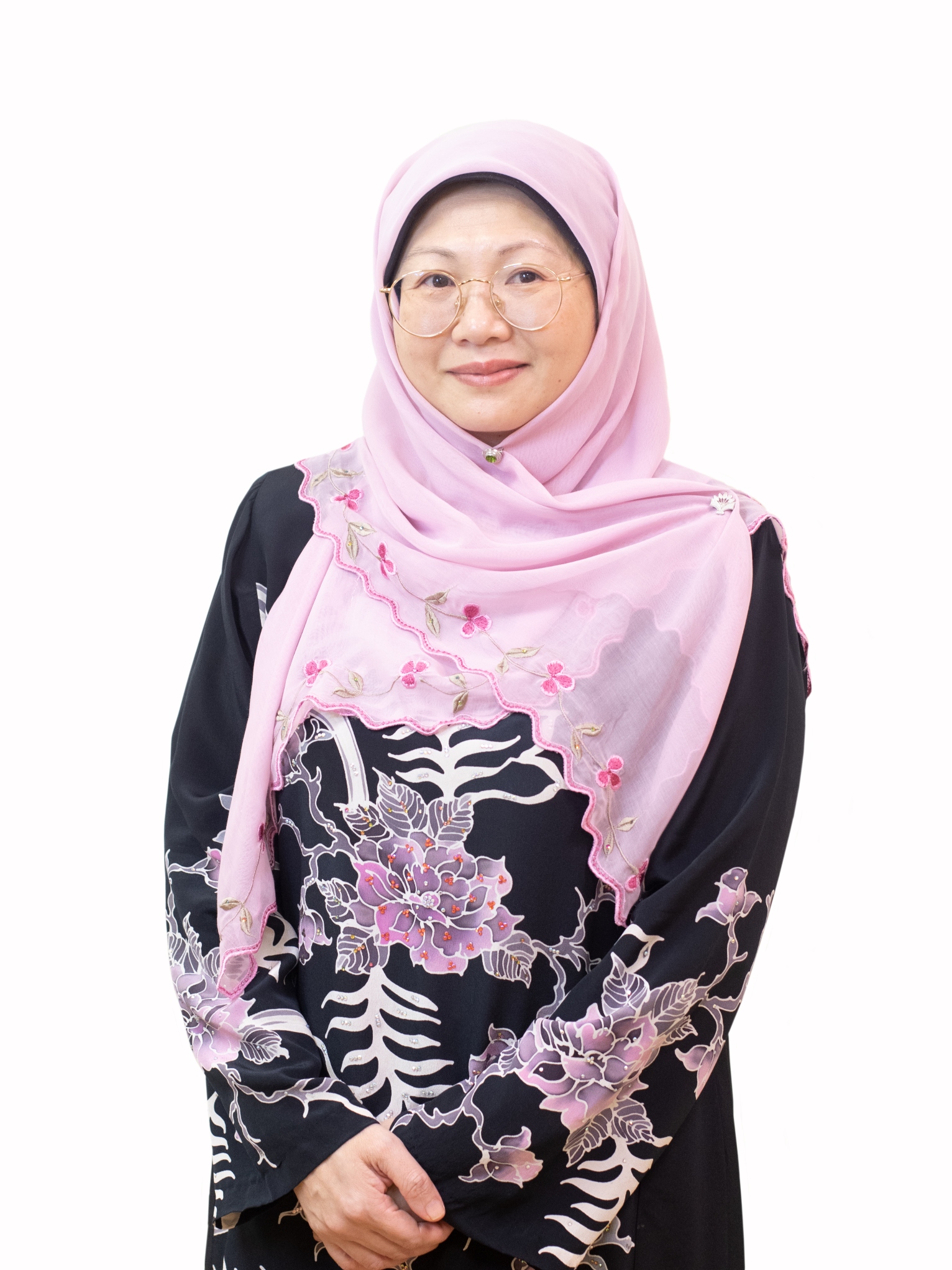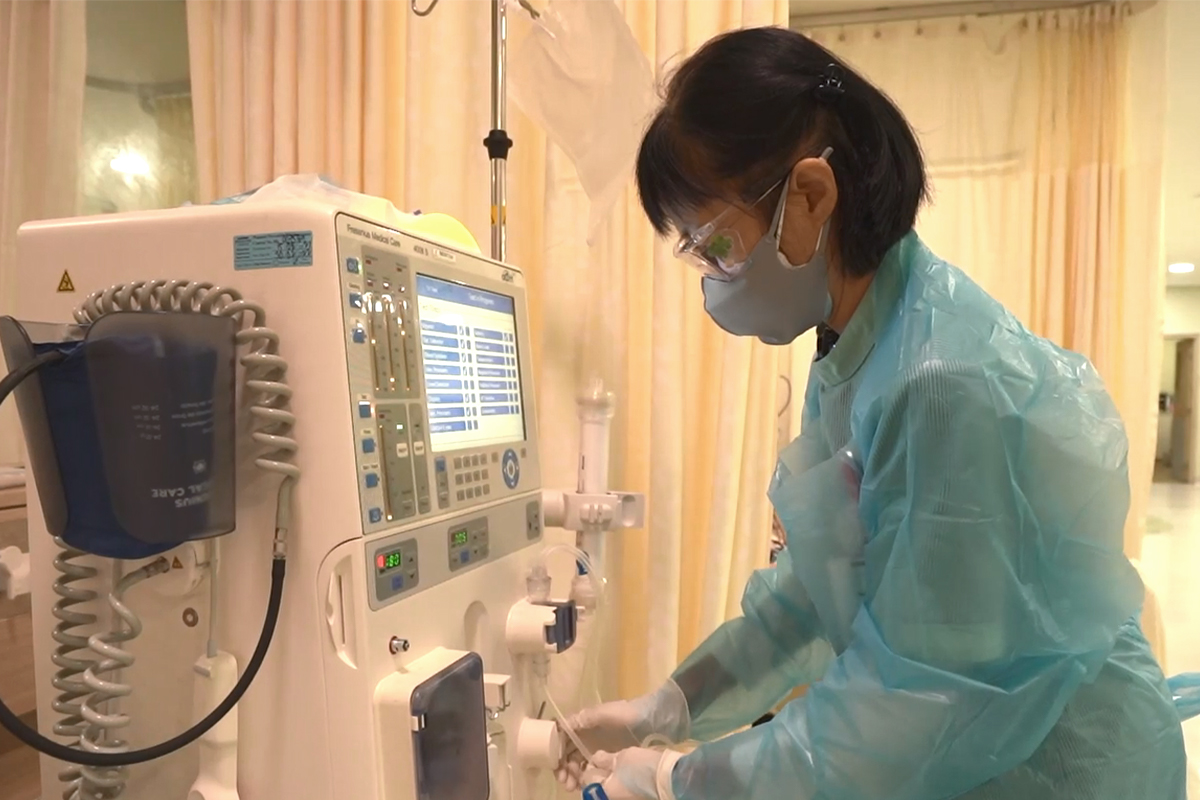Sunway Medical Centre Offers A Second Chance at Life Through Living-Donor Kidney Transplant
08 March 2022
This year’s World Kidney Day theme of ‘Kidney Health for All’ puts forth a global call for people to not only be aware of kidney disease, but to actively know what their own kidney health measures are. The 2022 campaign focuses on efforts to increase education and awareness about kidney health and on reducing the high chronic kidney disease (CKD) knowledge gap at all levels of kidney care. Understanding the need for this, Sunway Medical Centre, Sunway City increases their advocacy toward raising awareness and finding comprehensive solutions for patients to lead healthy and fulfilling lives, most notably through living-kidney transplants.
Finding the life-saving puzzle piece
 Dr Rosnawati Yahya, who is a leading specialist for kidney transplants in Malaysia and a Consultant Nephrologist in Sunway Medical Centre, Sunway City, states that typically kidney transplant patients have the ability to live longer with a much better quality of life when compared to patients who opt for dialysis treatment. “Patients who are on haemodialysis usually need to go for their sessions around three times a week and use up nearly four hours of their time just to receive the treatment. This process is both tiring and costly,” she explains.
Dr Rosnawati Yahya, who is a leading specialist for kidney transplants in Malaysia and a Consultant Nephrologist in Sunway Medical Centre, Sunway City, states that typically kidney transplant patients have the ability to live longer with a much better quality of life when compared to patients who opt for dialysis treatment. “Patients who are on haemodialysis usually need to go for their sessions around three times a week and use up nearly four hours of their time just to receive the treatment. This process is both tiring and costly,” she explains.
To better understand the actual process of undergoing a kidney transplant, Dr Rosnawati explains that finding a healthy kidney is usually a family affair. “When we broach the subject of looking for suitable donors, we will first seek out the patient’s parents or siblings, as more often than not, they will be the best match. If that is not accessible, we look toward their extended family. If we still can’t find anyone suitable from the immediate family, we try to reach out to in-laws, spouses, or even grandparents,” she elaborates.
The preparation begins when Dr Rosnawati receives a referral for a new patient in need, in which she then arranges a meeting with both the donor and the patient. “I will usually take the patient and donor through a very detailed session, in which I discuss the benefits of a kidney transplant over dialysis, while also taking them through the potential risks of the procedure. Once both the donor and patient understand and agree to proceed, the donor will then undergo a thorough evaluation process. This includes a thorough assessment of medical history, blood and urine tests, cardiac and radiological investigation to determine the donor’s health risks so that we can be better prepared to mitigate any potential risks of kidney failure in future,” she explains.
Jenny Chong Yoke Chin, Senior Staff Nurse and Transplant Coordinator at Sunway Medical Centre, Sunway City (SMC) reiterates that providing comprehensive early counselling and testing is vital to ensuring the rest of the process goes smoothly. Explaining further, Jenny says that “Once we confirm with the transplant physician that the donor does not have any contra indication, my role as transplant coordinator takes over. I will proceed to coordinate various tests to record aspects of the patient’s health such as blood results, radiology reports, and special diagnostic reports and update the physician at each stage of evaluation. The physician will decide whether the transplant process can be moved on to the next stage.”

Jenny Chong, Senior Staff Nurse and Transplant Coordinator at work preparing for a dialysis.
After the transplant has taken place with no further complications, it takes about six weeks for both donor and recipient to return to living their lives as they normally would. “Donors are usually discharged three to five days after surgery to recuperate at home. They then return for a follow-up visit two weeks later to check on their recovery progress. As for the recipient, we require them to stay in the hospital for at least a week to be monitored closely. In the best-case scenario, dialysis can be stopped immediately if the transplanted kidney is working well,” says Dr Rosnawati.
“It is important to remember that after a kidney is donated, the kidney’s functions will be reduced by half since both the donor and the patient no longer have two kidneys” she adds.
Recovering a new zest for life
For people like Jenny and Dr Rosnawati, who work hard to ensure the success of each transplant, the best part of the job is being able to see someone who was sick have their quality of life restored.
“I’ve seen children return to school, dialysis patients who were difficult to deal with become cheerful, happier and more approachable. I’ve also heard of patients who got married and now have children of their own,” Jenny says. “This is truly the favourite part of my career; it has made me even more passionate about giving patients the information they need so they have the knowledge to take ownership over their health.”
The kidney transplant team at Sunway Medical Centre, Sunway City have been consistent in their efforts to educate and facilitate kidney transplant treatment as a viable solution for end stage kidney disease (ESKD) patients. In line with Kidney Health for All, SMC recognises their role as a healthcare provider to give patients and caregivers the right to assess, understand and use health information related to CKD.
“What’s important to us as primary care physicians, is to keep improving our management of patients with CKD across its entire spectrum from prevention and early detection, to its secondary and tertiary prevention and kidney failure care,” Dr Rosnawati emphasises.
Sunway Medical Centre, Sunway City is one of the few hospitals in Malaysia that carry out living donor transplants, with end-to-end service for all parts of the patient’s journey. This ranges from donor screening and matching to surgery and recovery for kidney transplantation. The hospital offers both compatible and incompatible blood type kidney transplantation for ESKD patients. Since the service’s inception in 2020, the hospital has carried out several successful kidney transplants.
Source: Health Matters
Back





